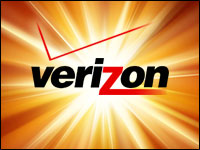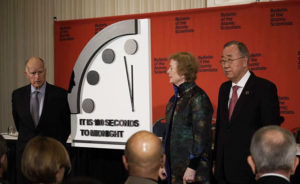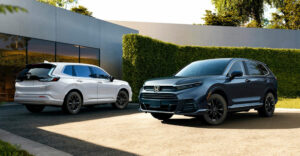
Verizon last week unveiled a new connected-vehicle service at the North American International Auto Show, taking place in Detroit this coming weekend. Verizon Vehicle, which will go live this spring, will be compatible with nearly every vehicle made since 1996. It will be available directly to consumers regardless of their wireless carrier.
Designed to enhance driver safety, Verizon Vehicle will provide diagnostic technology and live assistance with GPS accuracy in times of need. Moreover, it will connect drivers with live A.S.E.-certified mechanics who can diagnose potential problems and offer solutions.
“Verizon Vehicle is a unique and truly holistic aftermarket solution available to over 200 million vehicles on the road today,” said Erik Goldman, president of Verizon Telematics.
“It affords millions of drivers the power of knowing when things aren’t working well, potentially before a breakdown occurs –fostering a safer, smarter, and more economical way to drive and maintain a vehicle,” he added.
Verizon Vehicle can be preordered now; pricing is US$14.99 a month with a two-year contract. Additional vehicles can be added to the plan for $12.99 per month.
Aftermarket Answer to OnStar
General Motors has long offered its own OnStar telematics solution, but Verizon Vehicle is targeting drivers of other cars. It is compatible with nearly every vehicle — some 9,000 — made and sold in the United States since 1996.
It will be launched as a subscription-based service that is available to drivers regardless of the wireless service provider they use. Verizon Vehicle requires that an onboard diagnostic reader be installed on the dashboard and a Bluetooth-enabled speaker be clipped to the visor for communication with the service.
Verizon Vehicle offers GPS-directed, pinpointed roadside assistance for breakdowns or any scenario requiring towing and immediate repair. Its Automatic Urgent Incident Alert System can dispatch help in the event of a suspected accident. Its Auto Health System with Predictive Diagnostics can determine the potential severity of problems, potential solutions, and even approximate costs of repairs.
Other tools provided through the service include an app that can help drivers find where they left their vehicle, maintenance reminders and stolen vehicle location assistance.
Connected Car
“Verizon Vehicle is not going to be the only solution given the trend of big data coming into play, and we can say very easily that these solutions will start to saturate the market with options,” said Doug Gilman, automotive and transportation industry analyst at Frost &Sullivan.
AT&T, for one, has been working with car manufacturers to embed cellular radio in vehicles, including those made by GM and Audi. However, Verizon’s solution is aimed at the aftermarket.
“Regardless of the solution — through Verizon, a startup, or another [provider] — this trend in big data is here to stay,” Gilman told TechNewsWorld. “The idea is that big data — any solution, whether HMI(human mobile interface) or telematic — is now very much part of the driving experience.”
The Automotive App
The auto industry offers a huge potential market for carriers to expand their reach.
“A car is just a giant smartphone with a lot of apps,” said Steve Blum, principal analyst at Tellus Venture Associates.
“Verizon and everybody else wants into the space,” he told TechNewsWorld.
“Mobile networks will be as integral to driving and automobiles as roads are, and mobile carriers will pursue that market as aggressively as they would with any other connected device that has the potential to put a hundred million new — and relatively high-bandwidth –accounts on their networks,” Blum added.
These solutions also could help ensure that drivers head back to the dealership when problems arise, returning potential profits.
“OEMs make 75 percent of revenue from vehicle sales, but 75 percent of profit is from warranty services, so the ability to diagnose and handle a problem is going to be very attractive to an OEM,” noted Frost’s Gilman.
3G Not LTE
While the major mobile carriers have been heavily hyping their 4G LTE networks, Verizon Vehicle will utilize the older 3G network.
That could mean it will offer less than a full lifecycle for a newer car, said Roger Entner, principal analyst with Recon Analytics.
“Verizon’s 3G network may not be around for 12 years, which is now the average length of automobile ownership,” he told TechNewsWorld.
“That is a big obstacle for the automakers,” Entner added. “Would you buy a smartphone today without LTE support? You will keep your car a lot longer than you keep your smartphone.”
Although LTE would be “an added bonus,” Verizon Vehicle is running on a 3G to save costs, observed Gilman.
“A lot of these types of services aren’t running on the LTE networks,” he pointed out. “You still see a lapse of service with LTE, and this more than likely will change as the spectrum becomes larger.”






















































